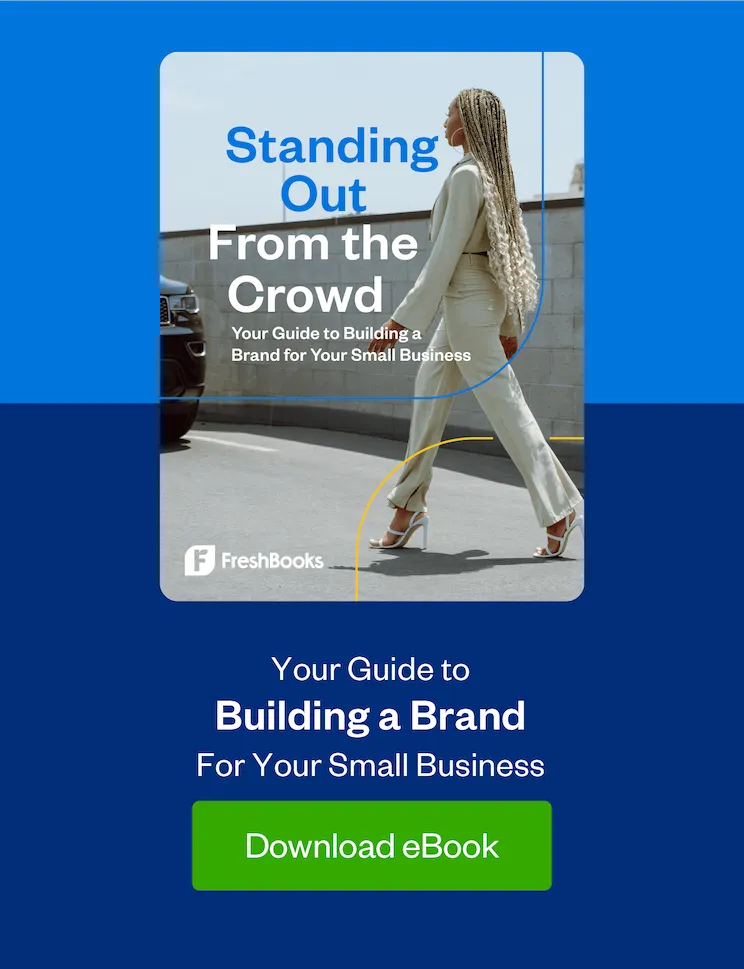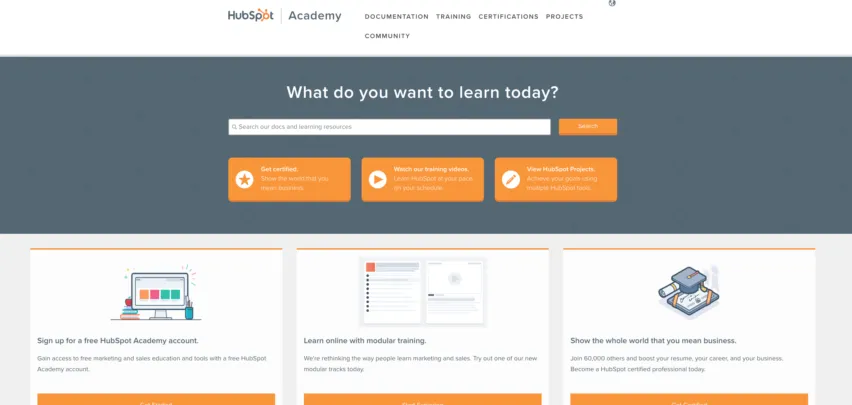86% of consumers are checking out your competition for at least half of their purchases. How does your company stack up?

Your company needs to have a special angle—a compelling value proposition—to stand out. This is how you prove to prospective buyers that your solution is the right one.
To be clear, that doesn’t just mean your prices. This is where your competitive edge comes in.
Kimberly Amadeo of The Balance defines the idea this way: “A competitive advantage is what makes you better than the competition in your customers’ minds.”
Think about the companies you purchase from regularly. There’s a reason you choose to keep going back, whether that competitive edge is something as simple as proximity or pricing, or something more complex, like your unspoken desire for the social prestige associated with the purchase.
Your company must achieve a similar competitive edge, whether you sell products, services, or some combination of the two. Here are 9 ways to get there.
Table of Contents
1. Charge More
While many businesses think of slashing their prices to stand out, there’s value in going the other direction. Consider the adage: “You don’t buy a Rolex to tell time.”
Charging more is what’s referred to as “prestige pricing.” It’s used not just to boost margins but to increase a brand’s image and social capital by appealing to buyers who don’t take cheaper products seriously.
The only caution here is that your products or services need to be able to justify the higher pricing you want to command. Don’t be the next Fyre Festival, promising luxury and delivering a bare-bones experience.
2. Become an Online Influencer
Influencer is a nebulous term these days, but its function as a competitive edge is simple to understand. The more people who know and respect your company, the more customers you’ll acquire when these same people have a problem you can solve.
Take a look at the Hubspot Academy and certification program:
Hubspot’s certification programs are totally free, and when combined with the site’s other helpful resources, cement its position as a leader in digital marketing services and support.
3. Speak at Events in Your Industry
Speaking at conferences, meetings and other events have a similar impact on expanding your company’s perceived authority.
Know Your Company’s CEO Claire Lew shares both the monetary and intangible benefits of pursuing this type of competitive edge:
“Of all the channels we’ve tried, I’ve found speaking at events and conferences to have been the most interesting experiment for us. While speaking wasn’t the biggest source of sales for us last year (we saw 47% of our sales come from inbound marketing, while 38% came from speaking opportunities)—it’s where our greatest learnings have come for me as a CEO, and for our business.”
4. Create Your Own Data
Businesses are often encouraged to use data points and statistics in the marketing content they create, as doing so gives the appearance of authority and credibility.
You can be the business they cite.
While you’ll want to adhere to proper surveying and sampling protocols, gathering market data can be done easily with tools like Google’s Consumer Surveys and SurveyMonkey. Package your results in a neat format for distribution and your industry presence will grow.
5. Niche Down
Trying to be everything to everybody often has the opposite effect.
Take copywriter and business coach Ash Ambirge of The Middle Finger Project. Ambirge’s site isn’t for everyone—as evidenced by the “Snark Mode” versus “Censored” toggle switch and blog posts with titles like, “Self-Promotion Doesn’t Have to Turn You Into a Self-Absorbed A-Hole.”
The Middle Finger Project isn’t for everyone. But for its target audience, the site’s unique tone and niche appeal create an immediately compelling competitive advantage.
6. Leverage New Technology
Another way to stand out in your space is to use new technology that nobody else is using.
Take live chat, for example. According to Econsultancy, “79% of customers say that they prefer live chat because of the immediacy it provides,” yet live chat adoption has been uneven across industries.
Adding technologies like this to your digital repertoire gives customers a great reason to shop with you rather than your competitor.
7. Delight Your Customers
When you surprise and delight your customers, it goes a really long way. Everyone wants to work with a company dedicated to delighting them.
Take the example of real estate agent Naomi Hattaway, who gives kids a “let’s go look for houses” goodie bag to keep them occupied while their parents are looking at homes.
It’s a simple, inexpensive option, but it’s one that’s sure to delight the families she works with, leading to more satisfied customers and more future referrals.
Make customer delight your competitive advantage with a similar approach by giving out (or mailing out, if your customers are remote) swag in recognition of major client milestones—the way FreshBooks sent giant cookies to those celebrating 10 years of account usage.
This was unexpected. Wow has it been 10 years already? Thanks for the giant cookie and great product @freshbooks pic.twitter.com/CzQ6dsUuLp
— Sammy Mateo (@prosam) October 9, 2015
8. Invest in Deeper Customer Relationships
Advocacy marketing is a hot topic these days, yet so many advocacy programs stop at auto-generating referral codes to top spenders.
What if you took things one or two steps further? What if you invested time and energy into forming real relationships with your best customers—maybe by grabbing a beer together or renting a suite at a local sports stadium for a small gathering?
The business world is impersonal enough already. Real relationships stand out and create a powerful competitive edge.
9. Create a Killer Culture
As many people talk about Zappo’s work culture as they do its shoes. And yes, the company has hit some road bumps in its growth. But consistently investing in creating a killer culture has driven a number of business benefits.
Customers want to buy from companies that treat their workers well. At the same time, these companies can attract the best talent. This talent—in turn—goes on to provide great service for the company’s customers.
It’s a win-win cycle that leads to positive growth and the development of a compelling competitive edge.
Do you have another strategy to add to this list? Leave your suggestions in the comments below.
Webinar: From Shoestring to Scaling: Improve Your Marketing Strategy on Any Budget

Written by Sujan Patel, Co-Founder, Web Profits
Posted on June 12, 2017



 Create an Online Freelance Profile That People Will Love in 6 Easy Steps
Create an Online Freelance Profile That People Will Love in 6 Easy Steps The Top 7 Reasons Why You Should Consider a Medium Blog for Business
The Top 7 Reasons Why You Should Consider a Medium Blog for Business Get Out There: 9 Reasons to Join an Industry Association
Get Out There: 9 Reasons to Join an Industry Association![Standing Out From the Crowd [Free eBook] cover image](https://prod-blog-k8s.freshenv.com/blog/wp-content/uploads/2022/05/Standing-Out-From-the-Crowd_eBook-Blog-Hero-Image-226x150.png)




